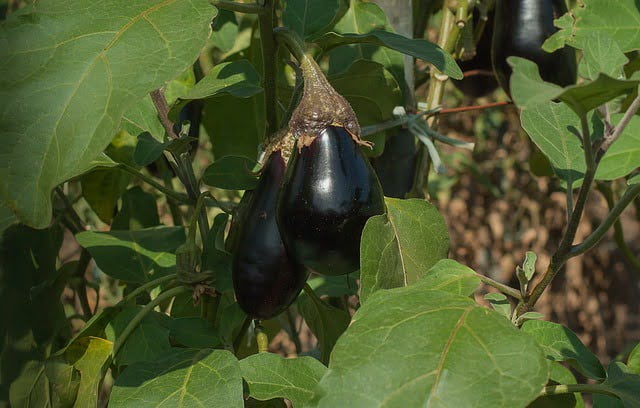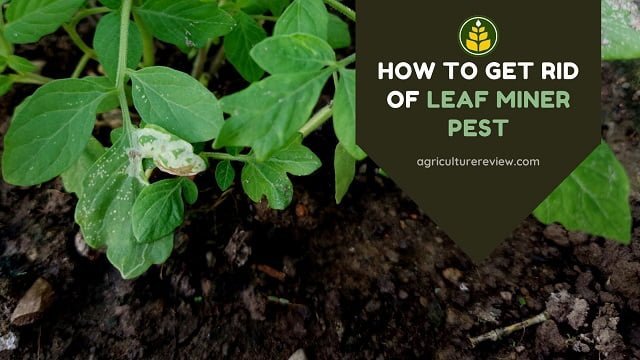This ultimate guide on how to grow eggplant will help you from germinating eggplant seeds to harvesting eggplant vegetables. Know better practices to grow eggplant.
Table of Contents
परिचय
Eggplant or Brinjal is grown worldwide for its edible fruit and delicious taste. Although it is considered as a vegetable but originally Eggplant or Brinjal is “Berry” by botanical definition.
बैंगन fruit is dark purple to brownish-purple in colour. Although few of its cultivars also appear white in colour.
बैंगन belongs to the Solanaceae family and its scientific name is सोलनम मेलोंगेना. It is grown widely in East and South Asia. It is a tropical perennial plant.
बैंगन reaches up to a height of 1.5 to 5 feet. It needs support either through a stick tied to the plant or by cage around the growing plant to prevent plants from bending down.
Various types of cultivars of eggplant are available in the market. They differ by size, shape, and colour.
How To Grow Eggplant?
To grow eggplant, you will need to know growing season, potting mix, pot selection, and propagation method. This will help you in germinating eggplant seeds successfully.
मौसम
You can easily grow eggplant from seeds during Spring और Late summer season. Plant hardiness zones 4, 5, 6, 7, 8, 9, and 10 are suitable for growing eggplant.
How To Grow Eggplant From Seeds?
It is ideal to purchase certified seeds or small plants at least 6 to 8 weeks old from the nearest plant nursery.
Prepare Potting Mix for growing brinjal from seeds. In an ideal condition, it can be prepared by using 50% sandy loam soil with either 40% cocopeat and 10% compost.
If you don’t have sandy loam soil then mix 30% sand in the mixture.
Take a small to medium size dark-coloured container with proper drainage holes. There should not be any problem of waterlogging in the pot, as it can become a home for fungus and many diseases.
Pour the potting mix in the container.
If you are using purchased seeds then with the help of your finger dig a hole at least 2 to 3 cm deep और place one to two seeds in each hole and cover them with potting mix.
( Sandy soil is considered best for germinating brinjal seeds)
Apply water moderately, do not overwater in the pot, for better results cover the top layer of the pot with the mulch of straw. You can also use old brown leaves.
Put the germination pot in a sunny area and maintain the moisture of the pot regularly. Within 14 to 20 days you will notice new plants coming out of the seeds.
If you notice lot of plants coming out together in one place then take out some of them which seems unhealthy. This process can be done in a week after seed germination and it is called thinning.
मिट्टी का मिश्रण
Eggplant loves well drained, sandy loam soil that is rich in organic matter. Soil pH should be slightly acidic to neutral.
Prepare new potting mix with 70% sandy loam soil + 30% any organic compost, if you have normal garden soil that has less amount of sand particles then mix 50% soil + 20% sand and 30% organic compost.
गमले का चयन
Pour this potting mix into medium to large size container, you can also use a 25 litres capacity bucket with drainage holes at the bottom. Drainage should be such that extra water sweeps out of the pot easily.
Make sure that your growing pot have at least 2 to 4 drainage holes at the bottom.
Transplanting
When your seedlings reaches 3 to 4 inches height, you can transplant it into a new pot. Whether you grow it in a pot or not, try to keep each plant at least 2 feet apart.
Dig a hole in the upper layer of soil and put your well-developed seedling into the new pot and cover the bottom of the plant with potting mix. Make sure that the roots are completely inside the soil.
Water it after transplanting, add an inch layer of mulch in the pot around the plant. Keep the pot in indirect sunlight for 5 days. And ensure that they get at least 5 to 6 hours of indirect sunlight.
Apply water in the pot when the top layer of soil seems dry, do not overwater the pot.
Eggplant Care Guide

After transplantation, you need to take care of your eggplant very well. Taking good care of the plant results in increased yield. Providing adequate sunlight, water, and fertilizers helps in growth of the plant.
सूरज की रोशनी
Eggplant requires direct bright sunlight to grow. Provide at least 6 to 8 hours of direct sunlight daily.
Direct sunlight will not only help in vegetative growth but will also help in getting higher yield.
पानी
Eggplant loves moist soil but hates soggy soil. Therefore keep the soil evenly moist. But avoid waterlogging condition in the pot. I prefer watering only when the top layer of the soil seems dry.
Provide adequate amount of water during flowering and fruiting. They are critical period for moisture.
खाद
Moderate amount of fertilizers are good for growing eggplant. Avoid adding nitrogen rich fertilizers during flowering period. I prefer adding two to three handful of organic compost once after every 30 days.
However I also add waste decomposer या sanjeevak once in every 15 days. During flowering period start adding banana या onion peel fertilizers once after every 15 days. This will help in increasing flowering and fruit set.
Flower drop can occur due to insufficient watering या poor pollination. Provide adequate moisture during this period and hand pollinate if natural pollinators are not present in the garden.
कीट और रोग
Pests like beetles, hornworms, or aphids can cause damage to the plant. You can place sticky traps near your plant to prevent any flying pest.
However disease like powdery mildew, fruit rot, blossom end rot, etc. can harm your plant. Prevention is always better than cure. That’s why keep spraying diluted neem oil or any common organic spray periodically once after every 14 days.
Benefits Of Brinjal
It has carbohydrates, fibers, protein, vitamin K, vitamin C, manganese, potassium, etc.
Its fruit has a high amount of antioxidants.
Many researchers believe that it helps to reduce the risk of heart disease, promote control over blood sugar, help in weight loss and help in fighting cancer.
I guess you are now clear on how to grow eggplant in your garden. If you have any ideas, suggestions or queries then comment below. Agriculture Review will be happy to help you out in gardening and agriculture.






thanks for all the information on the eggplant care. We are in climate zone 6 in Toronto. we get 6-8 months to grow the veggies. I was particularly looking for information on when is the right time to harvest it and how to save seeds for the next season
Welcome Kersi, generally in Toronto sowing time of eggplant varies from end of February to March. And eggplant get ready to be harvested 100 to 120 days after seedling germination. You can start harvesting from June to August depending on plant variety and time of plantation.
To collect seeds, wait until eggplant is overripe. At this stage cut the eggplant into two halves and separate seeds from the flesh carefully. Wash the seeds with water in a container to remove the pulp. Strain the seeds and spread them in a tray to dry. Dry the seeds in a cool and dry environment away from the sunlight for 2 to 4 weeks. Your seeds are ready. Keep them in air tight container for the next season. You can also treat eggplant seeds with broad spectrum fungicide.
I hope this will help!